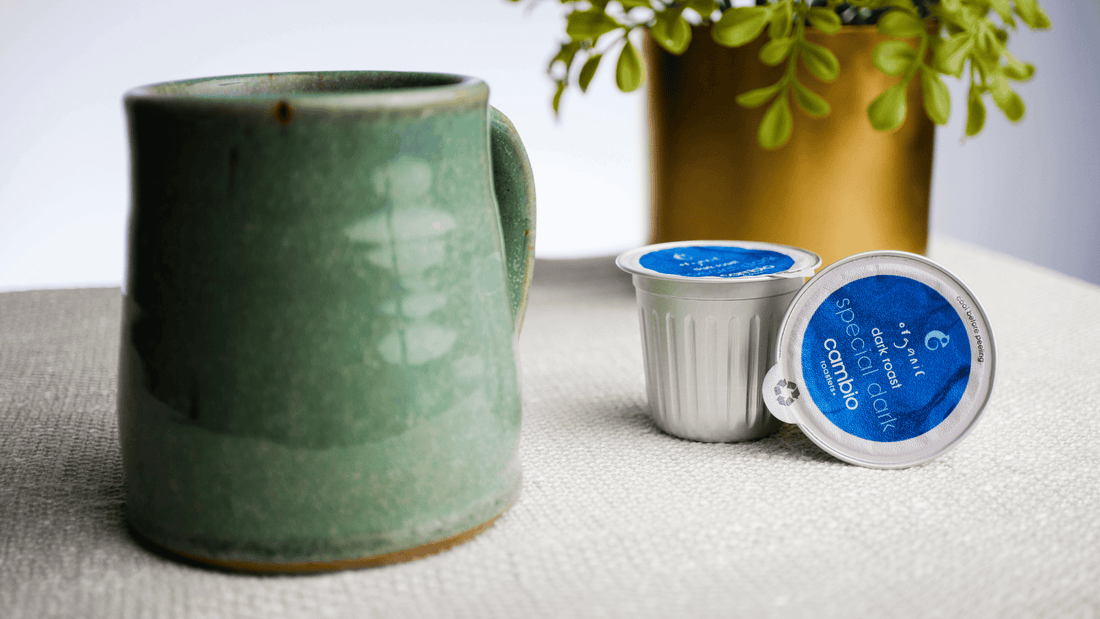The growing awareness of environmental issues is driving consumers and companies to rethink packaging choices. In the coffee industry, this is particularly important because millions of coffee pods and packages end up in landfills every day.
Two sustainable packaging solutions often come up in the conversation—biodegradable and recyclable packaging. While both aim to reduce environmental harm, they take very different paths to achieve that goal. Understanding these differences is crucial to determining which option is better for the planet.
What Is Biodegradable Coffee Packaging?
Biodegradable packaging is designed to break down naturally over time through microorganisms. This process mimics nature, where organic waste decomposes without leaving a harmful footprint. Materials used in biodegradable packaging may include plant-based plastics, paper, or bio-polymers.
The promise of biodegradability lies in its ability to turn waste into compost, potentially enriching soil when disposed of correctly, especially in plastic-free coffee pods.
However, the reality is more complex. For many biodegradable materials to decompose efficiently, they require specific conditions—such as controlled heat and moisture—that are often unavailable in regular landfills or home composting setups. Without these conditions, biodegradable packaging may degrade slowly or even release harmful greenhouse gases like methane, which contributes to climate change.
How Does Recyclable Coffee Packaging Work?
Recyclable packaging focuses on reusing materials to extend their life cycle. Aluminum, glass, and certain plastics can be recycled multiple times, reducing the need for new resources. For example, we use aluminum coffee pods that are infinitely recyclable, ensuring they can be reprocessed repeatedly without compromising quality. Especially dark roast coffee pods.
Aluminum recycling also requires far less energy than producing new aluminum, making it an energy-efficient option. However, recyclable packaging is only effective if consumers properly dispose of it and if there is adequate recycling infrastructure in place.
Unfortunately, many recyclable materials end up in landfills due to contamination or the lack of processing facilities, highlighting the importance of public education and systemic support.
Benefits and Challenges of Biodegradable Packaging
Biodegradable packaging aligns with natural cycles by decomposing into non-toxic elements, making it seem like an ideal solution. When properly composted, it can even enrich soil, contributing to healthier ecosystems. But there are challenges.
Most biodegradable packaging does not break down effectively in traditional landfills. Additionally, without widespread access to industrial composting facilities, much of it may not decompose as intended.
This type of packaging can also have a hidden environmental cost. Though it is derived from renewable resources, the production of plant-based materials like corn or sugarcane requires significant energy and water inputs. As a result, biodegradable packaging may not always be as eco-friendly as it appears.
The Promise and Limitations of Recyclable Packaging
Recyclable packaging offers long-term sustainability by reducing the demand for virgin materials. Aluminum, in particular, is a highly sustainable option since it can be recycled indefinitely without degrading.
Recycling aluminum uses 95% less energy than producing new aluminum, making it one of the most eco-friendly materials available. Our decision to switch from plastic to aluminum pods reflects this commitment to reducing environmental impact while delivering high-quality different coffee blends.
However, recycling systems rely heavily on consumer participation and proper waste management infrastructure. If recyclable materials are not sorted correctly or if local facilities lack the capability to process them, these materials may still end up in landfills. This underscores the importance of robust recycling programs and public awareness campaigns.
Which Packaging Option Is More Sustainable?
Both biodegradable and recyclable packaging offer sustainable alternatives to traditional single-use plastics, but each comes with unique benefits and challenges. Biodegradable packaging is ideal in regions with access to composting facilities, where it can decompose efficiently and provide environmental benefits.
Recyclable packaging, particularly organic compostable coffee pods, offers a longer-term solution by reducing energy use and waste generation—provided that recycling infrastructure is well-developed and consumers participate actively.
Our approach to sustainable packaging highlights the value of recyclable materials. By offering aluminum pods, like the Medium Roast Coffee Pods, that maintain coffee quality while reducing waste, the company demonstrates how thoughtful packaging choices can contribute to a more sustainable coffee industry.
Their focus on sustainability goes beyond packaging to include a business model that supports farmers and minimizes environmental impact.
A Balanced Approach to Sustainable Coffee Packaging
Rather than choosing between biodegradable or recyclable packaging, the ideal solution may involve a combination of both. For some products, biodegradable packaging may be the best option, especially when composting systems are available. For others, recyclable materials like aluminum provide a durable and environmentally friendly compostable coffee pod.
In the end, the effectiveness of both types of packaging depends on the systems that support them—whether through public recycling programs or composting infrastructure. We show that sustainable packaging is just one part of a larger strategy to minimize environmental harm while delivering high-quality products.
By making conscious choices about packaging and educating consumers, businesses can help create a future where coffee lovers can enjoy their favorite brews without compromising the planet.
Biodegradable and recyclable packaging both aim to reduce waste, but recyclable options like aluminum are more widely accepted and easier to process. Choosing the right material can make a big impact. If you’re looking for an eco-conscious brew that aligns with your values, explore our recyclable coffee pods designed for sustainability.
